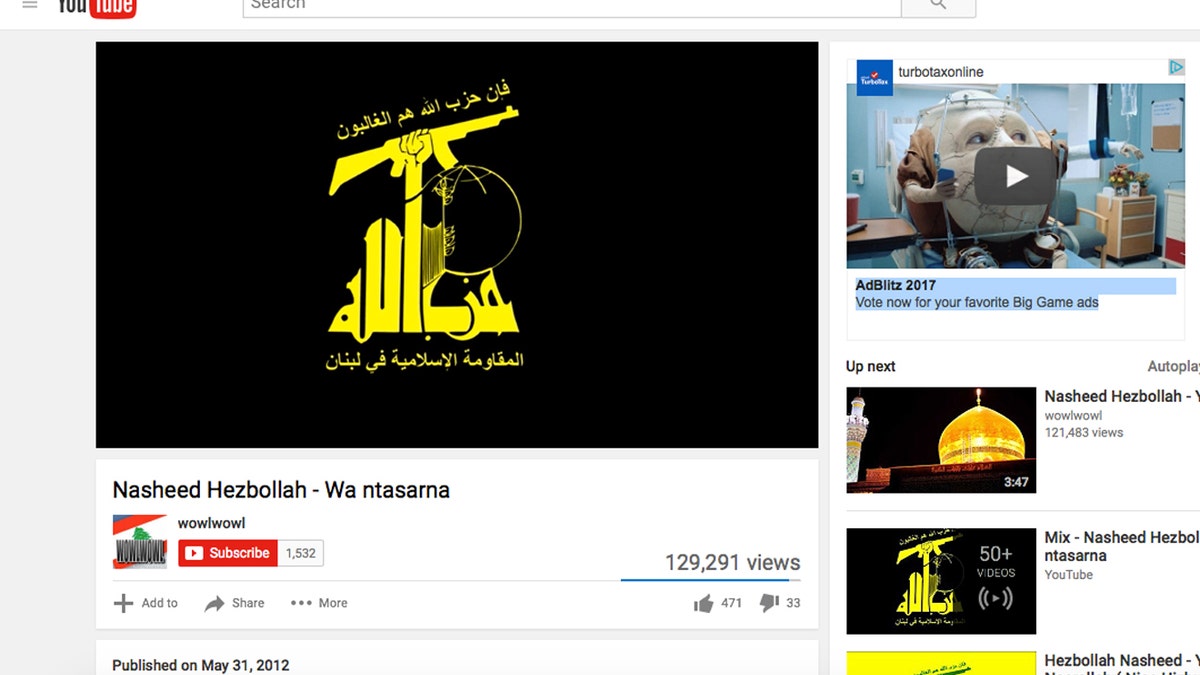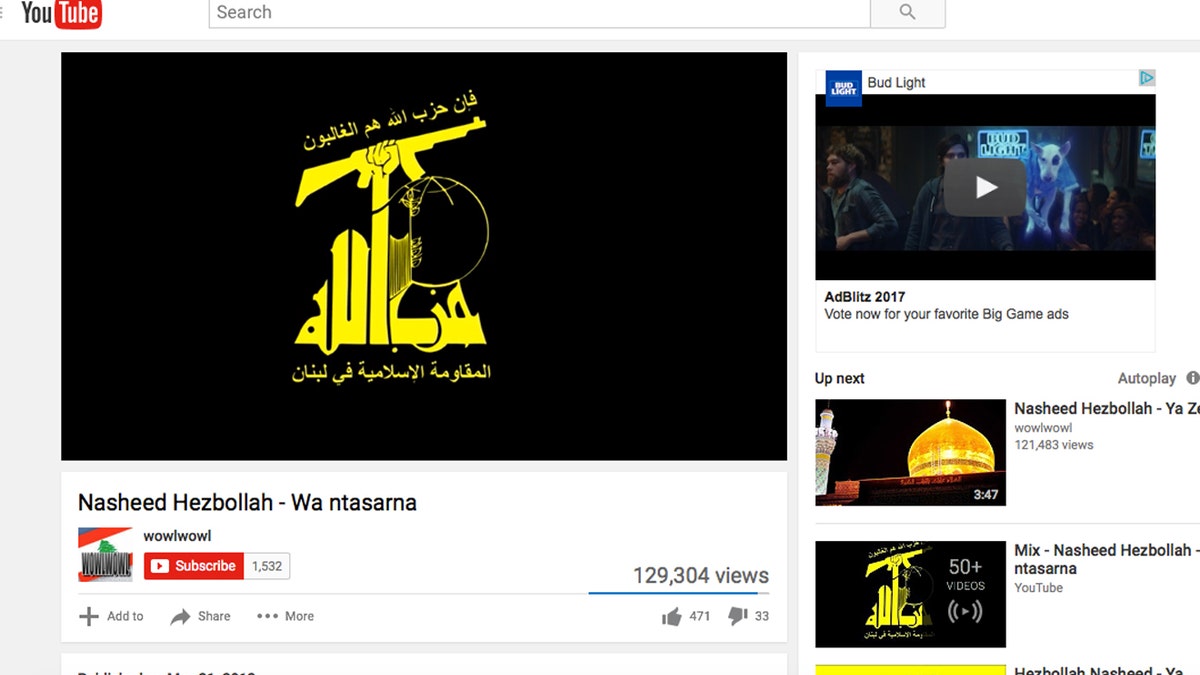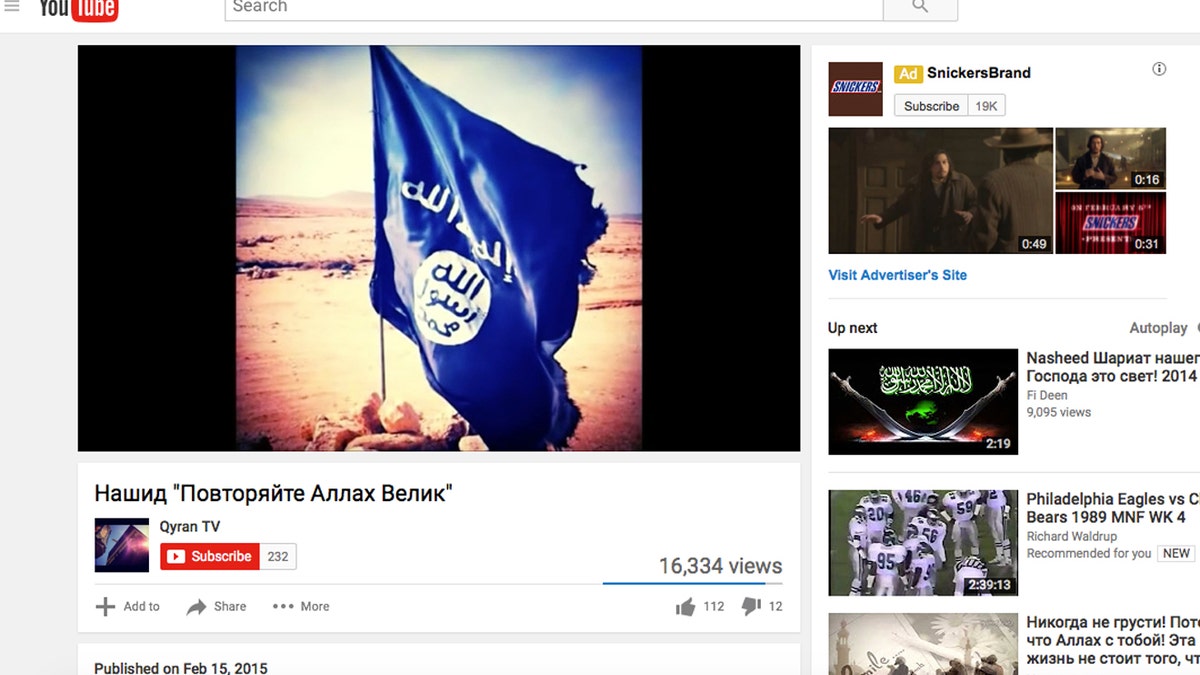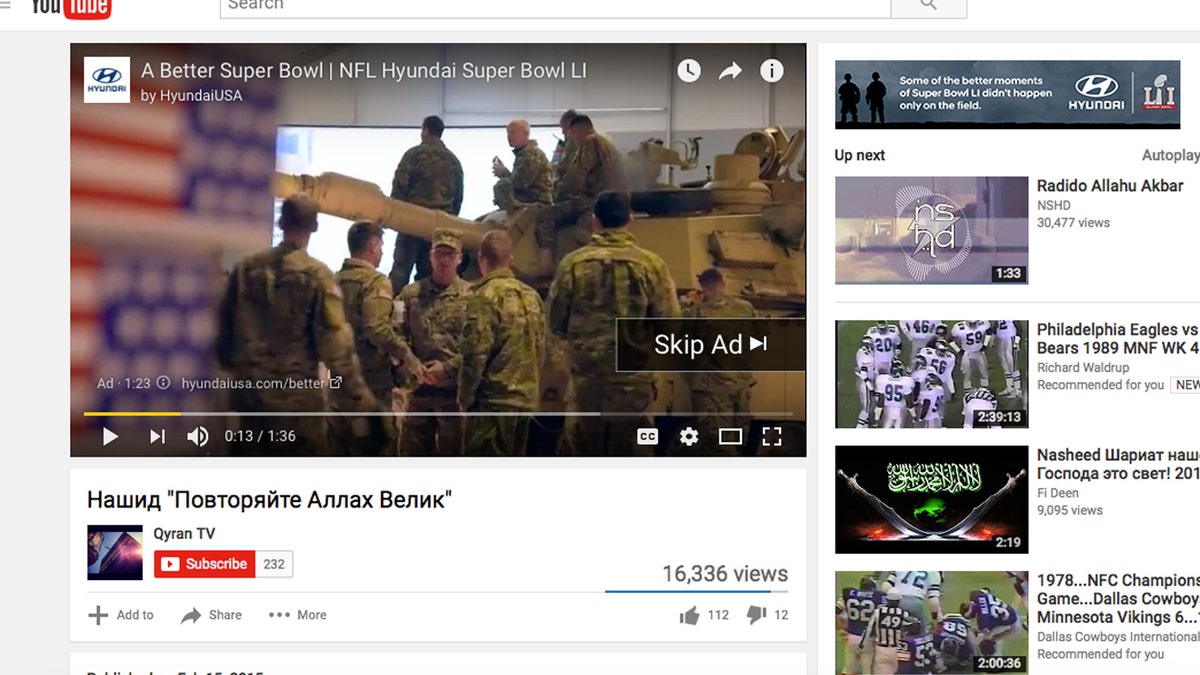Companies that paid up to $5 million for 30-second Super Bowl ads might be surprised to learn that those commercials are now running in front of ISIS recruiting videos –but they are.
Ads for Snickers, Budweiser, Hyundai and others all ran at the beginning of terror-linked videos, including clips that contained sermons and “Nasheeds” -- chilling chants aimed at radicalizing a fresh crop of jihadists. YouTube’s automated systems for pairing ads with videos often creates such jarring juxtapositions, and, critics say, expose the Internet video-sharing platform’s inability to weed out objectionable content.
"We find it highly unfortunate that someone would try to capitalize on such a terrific salute to our soldiers," Hyundai spokesman Jim Trainor told Fox News after being informed his company's message was fronting a message of terrorism. "We're going to talk to YouTube to see what we can do to prevent this sort of thing from happening in the future."

A Super Bowl ad for Turbo Tax appears at top right on a terror-linked YouTube channel. (Screengrab)
While YouTube insists it works quickly to purge such content from its platform, its enormous volume of user-generated videos makes it nearly impossible to do so instantly. But ads go onto video clips before they can be vetted, putting advertisers in a strange position.
“You look at corporate America’s ads in front of these videos, and it really has a reputational risk,” Eric Feinberg, CEO of GIPEC, a company which monitors online content, told Fox News. “The advertising community needs to take responsibility, go to YouTube, and threaten to pull their ads.”

At top right, and ad for Budweiser featuring character "Spuds McKenzie" appears on a YouTube channel used to radicalize terror sympathizers. (Screengrab)
Not only are major corporations’ ads appearing before videos sharing ISIS, Hezbollah and Hamas content, but YouTube’s monetizing model enables high-volume contributors to earn a cut of the profits YouTube reaps for placing ads on user-generated videos. Earnings are based on a share of advertising revenue generated when people view the video.
Although it is unclear whether YouTube pays out profits to channels that post ISIS and other terrorist group's videos, several have hundreds of thousands of viewers. “More views lead to more revenue,” YouTube's site states.
YouTube told Fox News that their community guidelines prohibit terrorist-related content, and even designated a “Promotes Terrorism” tab underneath every video on YouTube, so that the material can be reviewed by YouTube’s staff.

Top right, an ad for Snickers appears on a jihadist site. (Screengrab)
“We have clear policies prohibiting terrorist recruitment and content intending to incite violence, and quickly remove videos violating these policies when flagged by our users,” YouTube told Fox News in an email. “We also terminate accounts run by terrorist organizations or those that repeatedly violate our policies.”
The issue has proven vexing for YouTube in the past, and has been reported on by Fox News and other outlets. But the presence of Super Bowl commercials -- at $5 million per half-minute, the priciest advertisements of the year -- before terror-related videos highlights the problem.

Hyundai officials were surprised to learn this ad appeared on videos calling for acts of terror. (Screengrab)
Cyber security expert and former U.S. government-sponsored hacker Chris O'Rourke, who has worked with the National Security Agency and now runs Charleston, S.C.-based Soteria, told Fox News YouTube is a lot faster at posting ads than filtering content.
"Until YouTube filters the content, they have no way of being able to flag whether or not ads are appropriate," O'Rourke told Fox News. "They are not willingly going to support a narrative from these kinds of insurgents -- it's automated."
O'Rourke told Fox News that advertising agencies and companies have to go back to the early days of the Internet and understand where their ads could end up appearing.
"I don't know how YouTube, unless they know every single video, is going to be able to stop this," O'Rourke said.
But Feinberg, whose company uses a technology that scans for hashtags across social media platforms in different languages for communication that indicates terrorist planning, told Fox News that it is “embarrassing” that he can find these accounts and advertisements, but YouTube cannot.
“Indirectly, Super Bowl advertisers and companies are funding or providing material support to terrorism and terrorist sympathizers due to YouTube’s shared ad-revenue program,” Feinberg told Fox News, adding that "it shows YouTube’s arrogance and carelessness.”

